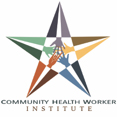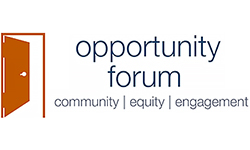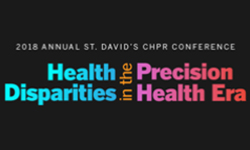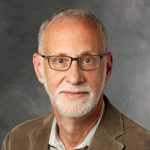 Paige Menking is a graduate student at the LBJ School of Public Affairs who joined our team last year to work as a GRA on our Community Health Worker (CHW) Institute. As a health policy student and a certified CHW and CHW Instructor, Paige has proven herself invaluable when it comes to looking at ways to empower this workforce and enhance their presence as part of a holistic health team. She has been selected as our Staff Highlight and shared some of her history and vision for better health care delivery.
Paige Menking is a graduate student at the LBJ School of Public Affairs who joined our team last year to work as a GRA on our Community Health Worker (CHW) Institute. As a health policy student and a certified CHW and CHW Instructor, Paige has proven herself invaluable when it comes to looking at ways to empower this workforce and enhance their presence as part of a holistic health team. She has been selected as our Staff Highlight and shared some of her history and vision for better health care delivery.
Q: What made you decide to go back to school for a master’s degree in Public Affairs?
A: After working for years at non-profits and state agencies, I wanted to get a bird’s eye view of our health care delivery systems to increase my impact. LBJ offers a great combination of thinking big picture but also getting into the weeds. I hope that combination will help me make better decisions at a system level and make positive changes in terms of health care delivery and policy.
Q: What kinds of changes do you feel are the most needed in health care policy and delivery
A: What’s become most clear to me is that there is no silver bullet. Health care is huge, it’s an economic engine and it has so many moving parts. I think the conversation is starting to focus around the intersections of access, quality and patient experience but we can do more to humanize systems of care and CHWs are a big part of that. We need physicians and hospital administrators to center decisions around population health and the social determinants like poverty, housing, trauma, etc. And on a national scale, payment models need to incorporate a realistic view of what affects people’s health and the healthcare system at large. We can’t just think about paying doctors for one specific thing; we need to be thinking about how to have payment models that allow medical providers to address social determinants of health.
Q: What has your experience been like working with TCRSS?
A: Well, besides the healthy snacks that are always available, I feel fortunate to have found a way to continue my work with Community Health Workers while I’m in school. This was the luckiest situation I could have come across, because the CHWs model of providing culturally competent, access to health and social services is something that is really important to me. Dr. Kim and the TCRSS team are focused on innovative and collaborative ways to address health disparities and so my knowledge and skill set just fit right in with the team’s mission and the work they were already doing. I also appreciate the support and guidance from Dr. Kim and the TCRSS team, who value and foster excellent scholarship. They really empower and support me in developing strong skills in the scientific method, including survey development and implementation, delivering presentations and writing for publication.
Q: Where do you see the Community Health Workers fitting in to a new more holistic model of health care delivery?
A: I think CHWs are key to bridging the gap between the health care system and communities who have been traditionally isolated from and mistrustful of that delivery system. There is still no silver bullet, and we need some large structural changes to really ensure health equity, but CHWs are uniquely qualified to address patients’ real issues today. They can help people navigate this really complicated system; they do the hard work of getting people access, and they inject compassion into a sometimes scary situation for a lot of folks.
Q: What kind of policy changes do you think could empower the movement of this work force?
A: Well, we need to figure out how to pay them sustainable and living wages. We need to also figure out how to have career ladders for folks who are doing this work and how to have them grow in their work, so that they don’t have to stay in the same position for 30 years without movement. Figuring out the payment model is the biggest challenge we face now, so when we think of how we are designing a health care system and how Medicaid, Medicare and other insurance plans compensate physicians and hospitals – CHWs and other folks who address population health and social determinants need to be a part of that conversation.
 In 2015, TCRSS conducted a wellness survey to gather feedback about which healthy living initiatives would meet the needs and interests of School of Nursing (SON) employees and students. Our goal was to raise awareness about the ways nursing students, faculty and staff perceive their current health, and to identify health-promoting activities and resources the SON community would like to access, it also provided a process to help create an ongoing strategic plan within SON. As part of this initiative, in May 2016, TCRSS applied for and received a HealthPoint mini-grant from the University and received $1,500 to fund new activities to address concerns raised in the survey. More specifically, this mini grant focused on providing outlets to improve mental health and physical activity, in addition to raising awareness about ways to incorporate wellness throughout the work day. The grant paid for yoga mats to be used during group yoga classes that are hosted at SON, and yoga and meditation DVDs that employees can check out for personal use. We received additional funding to paint the main stairwell in bright colors to promote lifestyle physical activity through use of the stairs, instead of the elevator, while in the building.
In 2015, TCRSS conducted a wellness survey to gather feedback about which healthy living initiatives would meet the needs and interests of School of Nursing (SON) employees and students. Our goal was to raise awareness about the ways nursing students, faculty and staff perceive their current health, and to identify health-promoting activities and resources the SON community would like to access, it also provided a process to help create an ongoing strategic plan within SON. As part of this initiative, in May 2016, TCRSS applied for and received a HealthPoint mini-grant from the University and received $1,500 to fund new activities to address concerns raised in the survey. More specifically, this mini grant focused on providing outlets to improve mental health and physical activity, in addition to raising awareness about ways to incorporate wellness throughout the work day. The grant paid for yoga mats to be used during group yoga classes that are hosted at SON, and yoga and meditation DVDs that employees can check out for personal use. We received additional funding to paint the main stairwell in bright colors to promote lifestyle physical activity through use of the stairs, instead of the elevator, while in the building.


 At present, there are several gaps preventing Community Health Workers (CHWs) in Texas from fully participating in the nation’s effort to transform the community health infrastructure. The quality of training across the state varies, and no central entity offers technical support, tools to enhance community health workers’ efforts, or connects them with work placement after training. While the flexibility of the current Texas CHW training delivery and certification process allows sites to serve the varying needs of diverse patient populations, this approach can lead to disparities between the training provided and the skills necessary to enter the workforce.
At present, there are several gaps preventing Community Health Workers (CHWs) in Texas from fully participating in the nation’s effort to transform the community health infrastructure. The quality of training across the state varies, and no central entity offers technical support, tools to enhance community health workers’ efforts, or connects them with work placement after training. While the flexibility of the current Texas CHW training delivery and certification process allows sites to serve the varying needs of diverse patient populations, this approach can lead to disparities between the training provided and the skills necessary to enter the workforce. As the social and economic demographics in Central Texas continue to shift, the narrative surrounding health care access, community wellness and health equity for traditionally underserved populations is both complex and consequential. Health disparities reflect the differences in health status between different groups of people, and Austin continues to see inconsistency in the health and wellness of particular communities based on location. This event focused on the idea that changes in pre-determined access, policy and practice are essential to provide all Austin residents the opportunity to achieve comprehensive and holistic health regardless of race, ethnicity, sexual orientation, income, or immigration status.
As the social and economic demographics in Central Texas continue to shift, the narrative surrounding health care access, community wellness and health equity for traditionally underserved populations is both complex and consequential. Health disparities reflect the differences in health status between different groups of people, and Austin continues to see inconsistency in the health and wellness of particular communities based on location. This event focused on the idea that changes in pre-determined access, policy and practice are essential to provide all Austin residents the opportunity to achieve comprehensive and holistic health regardless of race, ethnicity, sexual orientation, income, or immigration status. Now that the floodwaters have receded, the communities ravaged by Hurricane Harvey are beginning the long, hard road of rebuilding. Historically underserved populations—including low-income persons of color—face especially daunting challenges. What needs to be done to help the most vulnerable survivors rebuild their lives? How can we protect all residents from future flooding and exposure to other hazards? And what lessons have we learned from prior disasters to ensure that disaster recovery funds are spent more equitably and effectively? This event fostered a conversation on these questions and more, as we discussed how to build resilient and equitable communities after Hurricane Harvey.
Now that the floodwaters have receded, the communities ravaged by Hurricane Harvey are beginning the long, hard road of rebuilding. Historically underserved populations—including low-income persons of color—face especially daunting challenges. What needs to be done to help the most vulnerable survivors rebuild their lives? How can we protect all residents from future flooding and exposure to other hazards? And what lessons have we learned from prior disasters to ensure that disaster recovery funds are spent more equitably and effectively? This event fostered a conversation on these questions and more, as we discussed how to build resilient and equitable communities after Hurricane Harvey. Keynote Speaker: Usha Menon, PhD, RN, FAAN, Associate Dean for Research & Global Advances, University of Arizona, College of Nursing “From the Frontline: What Does Precision Health Mean to Me?”
Keynote Speaker: Usha Menon, PhD, RN, FAAN, Associate Dean for Research & Global Advances, University of Arizona, College of Nursing “From the Frontline: What Does Precision Health Mean to Me?” Speaker:
Speaker:  These days it would be hard to name an industry that hasn’t been impacted by innovative technology resulting in greater efficiency, convenience, and affordability. Health care, however, seems to be the exception. While health care keeps getting costlier, patient outcomes have gotten worse and management of chronic conditions such as diabetes are now responsible for 80% of total spending.
These days it would be hard to name an industry that hasn’t been impacted by innovative technology resulting in greater efficiency, convenience, and affordability. Health care, however, seems to be the exception. While health care keeps getting costlier, patient outcomes have gotten worse and management of chronic conditions such as diabetes are now responsible for 80% of total spending.